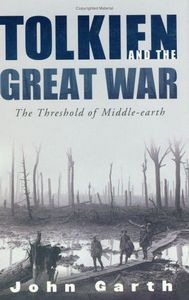Soldier, Poet, Oklahoman Jason Poudrier’s first book: Red Fields: Poems from Iraq
Jason Poudrier’s first book of poetry, Red Fields, gives a view of the Iraq war through the lens of a Purple Heart American soldier who fought and was wounded in that dangerous country. Gritty, but full of heart and sensitivity, Red Fields provides a glimpse into the war from the ground, the sand. From foxholes to desert convoys, from night guard to fire fights and artillery shelling, Poudrier leads us through the fear and banality and frustrations of war. Along the way, we meet his friends and colleagues, colorful characters like in the poem “We Called Him Martha Stewart,” who “made dressers / from discarded MRE boxes” and “solved our unit’s insect problems” by making empty water bottles into insect traps. Vivid, unusual, and authentic as the characters in classic war novels, such as Joseph Heller’s Catch 22, Poudrier’s book provides an insider’s glimpse into the lives of on-duty American soldiers at war.
Poudrier’s verse is spare and passionate; measured, but energetic; witty, but grounded. An artist in more than one way, Poudrier drew his own cover art, the charcoal drawing of the bust of a soldier with a gun, grenade, knife, and playing cards coming out of the soldier’s head, representing “the things they carried” in Iraq. Also included are photographs by Poudrier’s comrades in arms, which help reveal the stark, dangerous nature of the book’s subject. In these photos we see camels, expanses of desert, trucks in convoy, dead bodies and bombed out buildings, civilian Iraqis in long flowing white clothing and sandals, and camps where the soldiers stayed and slept and waited.
Some of the most moving poems in this collection are about Poudrier being wounded in action and the long healing process. The poem about his initial injury is full of detail and energy, pain and stasis: “I am strapped down / face down / forced to watch…as our wounds ooze / through gauze / saturating / the Blackhawk hull.” Furthermore, there is the feeling here and throughout the book that Poudrier is not alone. Others, too, are injured and carried away in the same chopper. Others, too, suffer the same psychic and physical pain. Poudrier speaks for himself and his fellow soldiers, a true strength of this collection. For a civilian, the book is an eye opener; the book pulls at your mind and heart.
What an excellent start for a veteran poet. There’s power and heart in Poudrier’s verse. May he follow the path of other notable American warrior poets, like Yusef Komunyakaa, who illuminate the soldier’s experience and help illuminate the human condition for soldiers and civilians alike.
